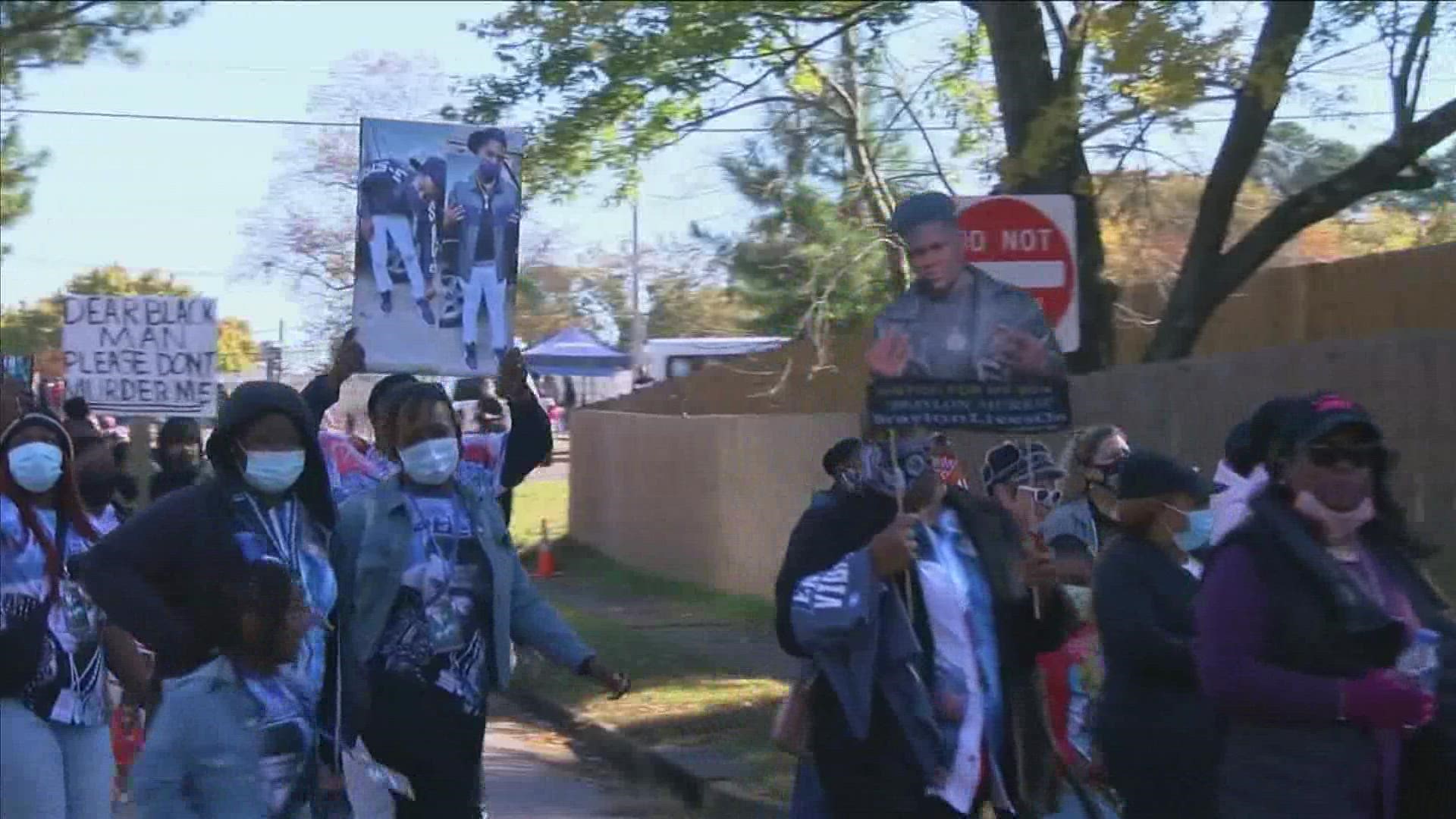MEMPHIS, Tenn. — It is no secret that the city of Memphis has an issue with crime and violence.
Many in our area are doing what they can to address it, but how do you cope with the aftermath or put a stop to it in general?
We spoke with therapists who weighed in on the question.
With much violence in the community, our youth are struggling to cope.
“I think a lot of times is being able to identify the actual feeling that you're having, whether it be anger versus sadness,” said Lauren Hudson, Anchored in Healing Counseling Co-Founder.
The lack of identifying the actual feeling leaves some to take out their feeling in non-healthy ways.
Jamil Matthews and Lauren Hudson founded Anchored in Healing Counseling and help kids and adults deal with conflict.
“It's going to be so important that we have good connections, making sure that people have people that they can continue to communicate with, in a safe way,” said Matthews.
Over the past year, the Mid-South has seen countless shootings, lost lives, and for some, lost hope.
Matthews and Hudson said breaking the cycle comes from a change in mindset.
“It's important, initially from the beginning to establish healthy coping skills in conflict resolution. So even when children are small at two and three, I hear a lot of parents that they will if someone hits you, you hit them back. So, you're starting at a very young age of starting a cycle of if someone initiates violence with you, that's your response, versus being able to communicate,” said Hudson.
Matthews said, “It starts with the parents being able to sit down, having conversations to understand, okay, what are we upset about? Are we truly upset about this?”
Sometimes, parents may not know how to cope themselves.
“I have a lot of times never seen a parent or family where the adults didn't need therapy first, to learn a skill before they were able to be an example of how to build that skill. A lot of times parents have their own unresolved traumatic childhood,” said Hudson.
Therapists also found that most conflicts stem from unrelated problems.
“A lot of people out here is really suffering, in regard to just having the basic needs, and some of the things is going on inside their own homes,” said Matthews. “When kids carry that burden with them into the, into the school into the community, they feel like they have to fight because that's all that they know to do.”
Here are some things parent scan do at home before conflicts arise:
“I will say every time we send out a report card, have that child screened. So, every nine weeks, the child's parents are aware of, 'OK, this is where my child is presenting with these confines of mental health',” said Hudson. “I will say spying on your children, right? There should never be a time where your child is (and) you're not able to kind of tune in to what's going on.”
“Don't just accept that first, ‘Oh, I'm fine. I'm OK.’ Dig a little deeper,” said Matthews.
Memphis-Shelby County Schools has a variety of programs to support children on social and emotional issues.
The District's SEL priority programs are:
- Adverse Childhood Experiences (ACEs) training: ACEs are traumatic events that can have negative, lasting effects on brain development, health and behavior. The District has trained nearly 20,000 staff members and is committed to expanding awareness and training efforts to ensure the most support for students and school communities.
- Trauma-informed schools and practices: Schools that build a culture of understanding and support can be an extraordinary protective factor in the lives of students coping with trauma, many of whom spend more hours at school than they do at home.
- Response-to-Intervention2 for Behavior (RTI2-B): Multi-Tiered System of Supports (MTSS) that offers a powerful, evidence-based approach for meeting the behavioral and social needs of students.
- ReSET rooms: The ReSET Room is an intervention strategy in middle and high schools that is used as an alternative to suspension. MSCS expanded ReSET Rooms for all elementary and middle school sites in the 2021-22 school year.
- ReThink: MSCS adopted a district-wide Social Emotional Learning Curriculum for schools, faculty, students, and parents.
- Progressive and restorative discipline: Per MSCS policy, reasoned discipline is necessary to maintain safe, orderly environments that are conducive for education and to create a stable foundation of expectations, responsibility and consistency. However, ongoing assessment of progressive discipline strategies are necessary to ensure that exclusionary consequences are not excessively or carelessly given.
- Truancy support: Truancy staff assist all MSCS schools with locating students, resolving special cases, implementing the truancy intervention process, and referring them to appropriate departments for additional support. Truancy specialists conduct home visits as needed to determine reasons for non-attendance and follow up with the other departments/entities (e.g. homeless, foster care, DCS, technology, mental health) to help resolve attendance issues.
- Homeless & displaced youth services
- Section 504: Prohibits discrimination on the basis of disability in programs or activities that receive Federal financial assistance from the U.S. Department of Education.
- Anti-Bullying initiatives & training: For the District’s policy against bullying (Policy 6046), please see page 34 of the MSCS Student Handbook. MSCS students complete an anti-bullying contract (see page 44), committing to “treat all others with dignity and respect,” to refrain from bullying, and to report bullying to an adult, if experienced or witnessed.
- Counseling: The District’s S.E.E.D. Department and SEL Team have implemented several strategies for Social and Emotional Learning (SEL), Adverse Childhood Experiences (ACEs), and Mental Health supports for students.
- Mental health services: MSCS has strategies, activities and support lines for families so students and parents can contact school social workers and counselors around the clock for resources and assistance with social-emotional concerns. SEL/Mental Health Support Lines have been recognized as a model and best practice by other U.S. School Districts.

